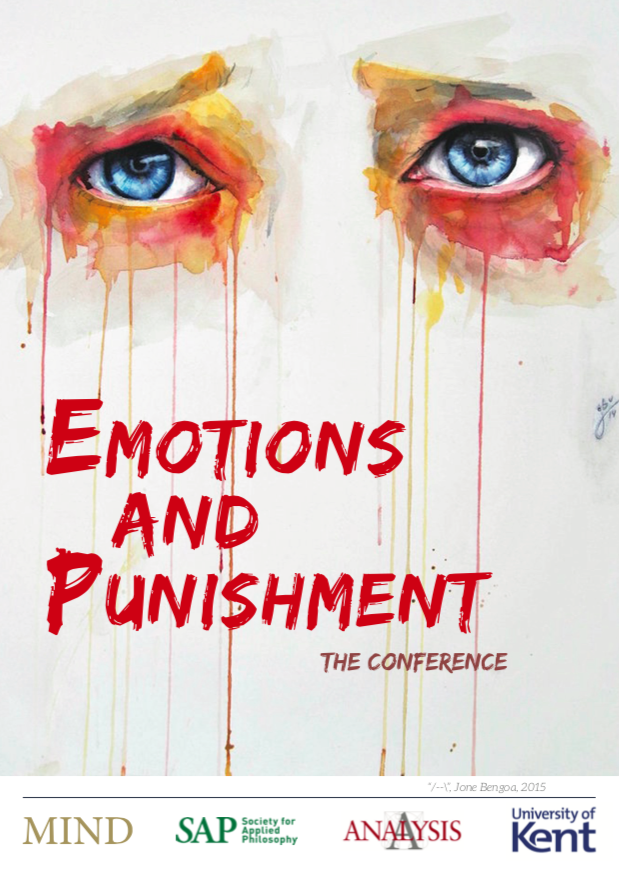Current projects
My research programme has two strands: plant humanities & ecological botany. Click through below to find out more about each.
Previous funded projects (2014-2023):
Law & emotion
The emerging field of law and emotion aims to identify how emotions matter for legal theory and practice. This is a fundamentally interdisciplinary endeavour, drawing insight from advances across the sciences, social sciences, and humanities. Emotions are dynamic processes that play a critical role in decision-making, especially collective decision-making in which multiple agents interact to form a decision. A pressing avenue of consideration is therefore the place of emotions in group and institutional settings, including the justice system.
This project draws on a broadly virtue-ethical theory of emotions to examine emotional group dynamics in legal decision-making. I have focussed on two sets of legal actors (lawyers and jury, and jurors and jury group) to defend an account of emotion’s power in creating legal values and performing collective deliberation tasks. Emotions such as love, fear, disgust, compassion, and anger can function as sources of information regarding the value of the emotional target or object and why it is worth pursuing cognitively. One question I consider here concerns the conditions (if any) in which emotions can operate as good heuristic guides in legal judgment.
An urgent yet under-explored area of law and emotion concerns the emotions of those serving sentences. My current research draws on empirical and theoretical work in the philosophy of emotion to examine the role of suffering in criminal punishment. I aim to evaluate when imposing suffering through judicial means is or is not legitimate, and why.
For this project, I was nominated as a UKRI Future Leaders finalist, in a year with no awards made in the humanities or social sciences.
Indicative output:
“The Pain Factory”, Edinburgh Festival Fringe
“Emotions in the Evaluation of Legal Risk”, in Law and Emotion, eds. Hilge Landweer and Dirk Koppelberg (Freiburg: Karl Alber Verlag), 249-277.
Emotion and Value in Risk Assessment, Management, and Communication
As part of the Rethinking Risk Project, I investigated (1) the nature and value of epistemic emotions: how to create spaces that harness the attentional and motivational power of emotions towards the achievement of valuable epistemic goods, and facilitate the development of epistemic virtues; and (2) the role of emotions in imaginative and counterfactual theories of risk.
Indicative output:
“The harvest of despair’: Catastrophic fear and the understanding of risk in the shadow of Mount Etna, Italy”, in Waiting for the End of the World: New Perspectives on Natural Disasters in Medieval Europe, eds. Christopher M. Gerrard, Paolo Forlin, and Peter J. Brown (London: Routledge): 143-161.
Political Emotions: The Citizens’ Income
An offshoot of my law and emotions research investigated arguments for and against establishing a Citizens’ Income. I address the cognitive science of fear and insecurity and the impact of these emotions on creative problem-solving.
Indicative output:
“Does fear drive economic progress?”, IAI News
Engaging the Emotions in Education
This project concerns the educational power of emotion. Here, I am examining developments on Solomon Asch’s now-famous series of experiments regarding group pressure and dissent, to argue for a constructive role of educating the emotions.
A second area of research interest here concerns students’ emotional experience of feedback and assessment. In particular, I am interested in how different methods of feedback and of assessment impact the emotions and how students’ emotional processing of learning material inhibits or enhances their engagement with that material.
Indicative output:
“What Good is Love?”, Analytic Teaching and Philosophical Praxis, Vol. 34, Issue 2: 57-73.
Doctoral Research
The major work of my PhD was original research into the history of taxonomy, focussing on the cognitive science of emotion and well-being. The human urge to categorise is an ancient one, and complex. In my thesis, I defended a novel account of how the most influential ancient Greek classification system in history—Plato’s theory of participation (μέθεξις) in forms, as detailed in his extraordinary dialogue, The Symposium—successfully explains relationships between hierarchies of concepts: biological and moral. Plato’s taxonomical account is famously thought to be incomplete, but my translation of his dialogue on the emotion of love unearthed a previously unidentified solution to that problem. Because this account of Plato’s was embedded in a narrative about love and its role in well-being, I also developed research expertise in the cognitive science of emotions: what emotions are, how they work, and the conditions under which they can be evaluated as reasonable. The study of the emotions is a significant trend in Platonic scholarship, one which widens the boundaries of ancient philosophy to speak to moral psychology, classical studies, and political theory. I therefore concluded the thesis with a practical application of how my theory can contribute to recent developments regarding the role of emotions in moral education.
My PhD was fully-funded by the Social Sciences and Humanities Research Council of Canada and a Shaw Philosophical Fellowship, and was awarded in 2014, with no corrections, from the University of Edinburgh.
Charles Le Brun, Expressions des passions de l'Ame (1732)







